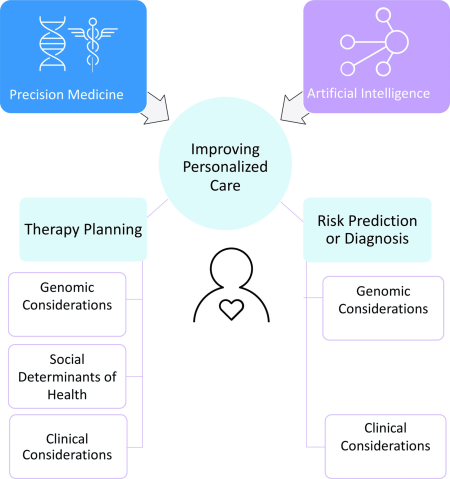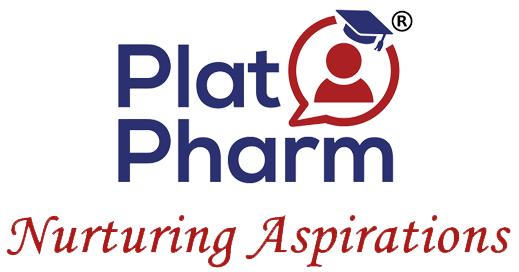
Precision medicine is an emerging approach in clinical research and pharmaceutical care aiming to provide individualized treatment to patients based on their unique genetic, lifestyle, and environmental factors. The concept of precision medicine supports evidence-based medicine and is making health science progressively data-driven.
The paradigm shift from healthcare for a “general patient” to a “specific individual” is evident from the medical fraternity's personalized treatment approach.
The History:
The concept of precision medicine is not new in Indian medical history; Ayurveda is based on making individualized potions for patients and their ailments. However, the idea of individualized healthcare started with the discovery of blood types and the concept of transfusion. This discovery led to an understanding that every human body is uniquely built. Since then, advances in technology and scientific knowledge have led to rapid expansion.
In the 1990s, the Human Genome Project was launched, significantly increasing our understanding of the human genetic makeup and its role in disease. In recent years, the development of technologies such as gene editing, next-generation sequencing, and machine learning algorithms have further propelled the growth of precision medicine. Many fatal illnesses now have precision medicine therapies that prolong life and improve the quality of life for patients, such as gene therapy for infants with spinal muscular atrophy (SMA) type I — a disease once uniformly fatal before age 2.
Let us understand a few terms associated with AI in healthcare to understand how AI quantifies the data required in Precision Medicine.
- a) Machine Learning: In simple terms, it is a branch of Artificial intelligence that finds patterns in massive data sets. It reads the data and makes decisions. The genetic code, familial history, demographic details, etc., are considered. Each factor is considered to be one data point in the data set. This data can be used to make predictions or classifications on new unseen data or for advanced exploratory data analysis. Machine learning is an integral tool for the advancement of precision medicine.
- b) Multiomics: Multiomics is a new approach where the data sets of different “omic” groups are combined during analysis. The word omics refers to a field of study in biological sciences that ends with “omics.” The inclusion of data from multiple domains referred to as “multi-omics” include - epigenetics “epigenomics,” protein “proteomics,” metabolic “metabolomics,” radiology “radiomics,” pharmacology “pharmacomics,” microbiome studies “microbiomics”, “environmental omics”
National Research Council initially called the development of precision medicine “a New Taxonomy of human disease based on molecular biology,” or a revolution in health care triggered by knowledge gained from sequencing the human genome. The convergence between precision medicine and AI enables genome-informed prescribing.

Applications of Precision Medicine in Clinical Settings
a) Critical Health Conditions
The following case study will highlight the value of Precision Medicine in dealing with critical health conditions:
(Reference: Sengupta, S. et al. The evolution of medulloblastoma therapy to personalized medicine. F1000Res. 6, 490 (2017).)
In medulloblastoma, the emergence of discrete molecular subgroups of the disease following AI-mediated analysis of hundreds of exomes has facilitated the administration of the right treatment, at the right dosage, to the right cohort of pediatric patients.
Although conventional treatment of this disease involves surgery, chemotherapy, and whole-brain radiation, precision genomics has enabled treatment of the tumor subgroup, which is more common in children, with chemotherapy alone — obviating the need for radiation.
b) Preventive Medicine:
This case study highlights the importance of data collected from genome sequencing in preventive medicine:
Lifestyle Modification is the prime factor in preventing many metabolic and habit-forming disorders. Data from genome sequencing will enable patients to understand the state of their bodies and motivate them to adhere to the curated treatment regimen.
In the report “gene-based medicine” of 2010, Collins, in 1999, described a young smoker who learns that his genes convey a six-fold increased risk of lung cancer. “Confronted with the reality of his genetic data, he arrives at that crucial ‘teachable moment’ when a lifelong change in health-related behavior...is possible.”
This genetic finding “provided the key motivation for him to join a support group of persons at genetically high risk for serious complications of smoking, and he successfully kicks the habit.” Hence, apart from modifying drug targets and understanding the cause of disease, this data could also be used for effective patient counseling.
The pharmaceutical industry has a critical role in the growth and development of precision medicine. Pharmaceutical companies are involved in developing new drugs and therapies tailored to patients' specific genetic and molecular profiles. This requires significant research and development investments and collaboration with healthcare providers and academic institutions. The concept of precision medicine is a boon to healthcare. But, the research and clinical advancements in this sector need to be in pace compared to other areas. This approach has a fair share of challenges like data security, accuracy, legalities, and funding.
A lucrative career opportunity:
Professionals seeking a career in this field need a strong understanding of biology, data science, and computer programming. They should also be able to work collaboratively with multidisciplinary teams to translate research findings into clinical practice. Job opportunities in precision medicine and AI include positions in research, clinical care, and industry, as well as in academic institutions and government agencies. Success in this field requires continuous learning, adaptation to new technologies, and a commitment to the ethical and responsible use of patient data.
To summarise,
Precision medicine has become increasingly important in clinical research, particularly in the context of treating rare diseases. However, its true value lies in its adoption as a public health measure that enables the collection and analysis of data from every patient. This approach can help identify epidemiological and familial disease transmission patterns, leading to more accurate diagnoses and tailored treatments for each patient. By leveraging precision medicine in this way, we can improve health outcomes and ensure that every patient receives the best possible care.
Precision medicine is not just a scientific endeavor but also a means of providing personalized and effective care to all individuals.
- Kosorok, Michael R., and Eric B. Laber. "Precision medicine." Annual review of statistics and its application 6 (2019): 263-286.
- MacEachern, Sarah J., and Nils D. Forkert. "Machine learning for precision medicine." Genome 64.4 (2021): 416-425.
- Johnson, Kevin B., et al. "Precision medicine, AI, and the future of personalized health care." Clinical and translational science 14.1 (2021): 86-93.
- Denny, Joshua C., and Francis S. Collins. "Precision medicine in 2030—seven ways to transform healthcare." Cell 184.6 (2021): 1415-1419.
- Joyner, Michael J., and Nigel Paneth. "Promises, promises, and precision medicine." The Journal of clinical investigation 129.3 (2019): 946-948.
- Subramanian, Murugan, et al. "Precision medicine in the era of artificial intelligence: implications in chronic disease management." Journal of translational medicine 18.1 (2020): 1-12.
- Manchia, Mirko, et al. "Challenges and prospects of precision medicine in psychiatry." Pharmacogenomics and personalized medicine (2020): 127-140.

